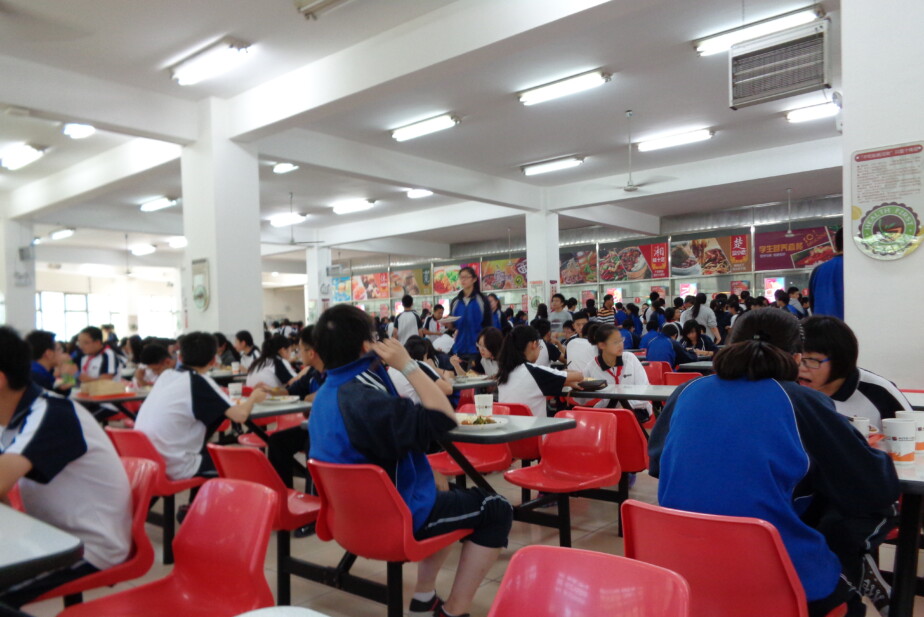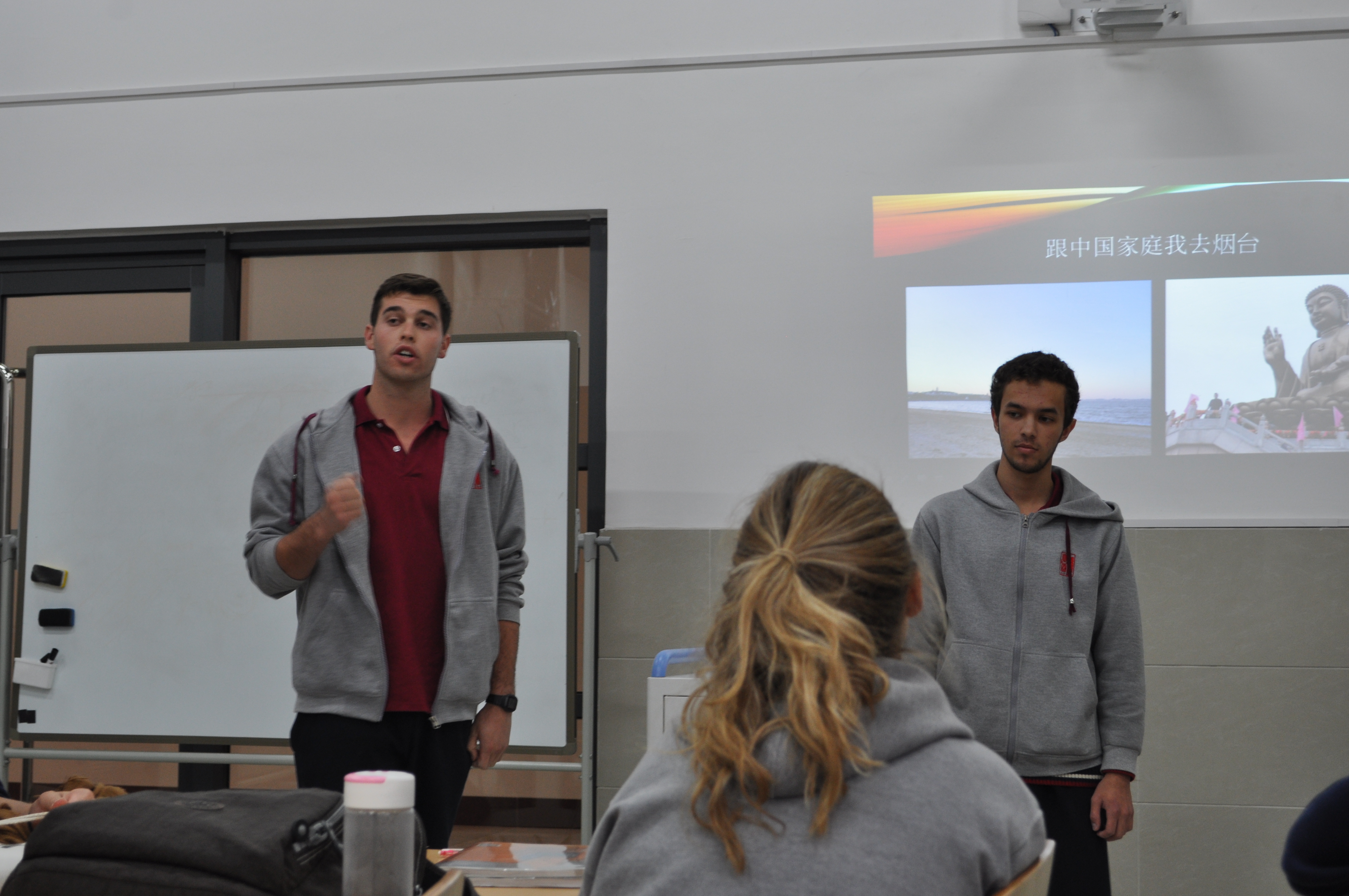
by Lee Mook
“Do not talk to strangers” is one of the most common pieces of advice parents give their kids, but, sorry Mom and Dad: I am here to tell you, it is wrong!
When I arrived in China alongside 7 other American students, it felt easy to eat together, speak English, and stay secluded from the other Chinese students. However, I decided to break out of the American bubble and do something different: “the Breakfast Club.”
Every morning, at 6:10 sharp, the dormitory plays what I have decided is the Mario theme song, mixed with the sounds that would accompany a breaking news story. I fling my blanket off of me like jumping into cold water, quickly and all at once: I would rather stay warm, but I am also always excited to start the day. So I quietly go through my morning routine, careful not to wake my roommate, who, thankfully, is a really deep sleeper.
By 6:45, I am in the school’s cafeteria, and the Breakfast Club starts. Walking among the bright red, 4-seat picnic tables, densely packed and jumbled in the shiny white-tiled cafeteria like red sprinkles on vanilla ice cream, I search for any Chinese student eating alone. Once I find a student, I take my breakfast (usually consisting of a hard-boiled egg, vegetable dumplings, and a glass of warm soy milk), sit down, and strike up a conversation.

China is a nation in which appearance is often more important than reality. For example, during the recent Asian-Pacific Economic Cooperation (APEC) Summit, Beijing was given a 5 day holiday, and almost all factories were shut down in order to ensure clear blue skies, and crisp, clean air, which I assure you is not the usual. Another example of appearances standing in for reality is how in my school’s Student Union, of which I am a member, there is a committee for almost every aspect of our operation; however, in the end, with the Halloween Party for example, the president and the sponsoring teacher make all the decisions. Another example was when I was reading my host brother’s summary of our travels to the forbidden palace. As I read, he told me, “Some of the things in my essay are not true, because in China we believe that things should be better than real life.” There you have it.

The “Breakfast Club,” the Public Speaking Club, and English tutoring have taught me that although I live in a country that holds appearance over reality, by talking and connecting with people through one on one conversations I can still uncover the true life and sentiments of people in China. There are relatively few chances in the very monitored and controlled setting of China to be able to talk explicitly with Chinese students, but the opportunity I found at breakfast and lunch has often left me astounded.
One of the most striking conversations was with a senior girl who is preparing for the “GaoKao” the college placement test, which, unlike the SAT, can only be taken once and is practically the only piece of information Chinese colleges use to determine acceptance. She was critical of some aspects of Chinese society, including the unrelenting stress involved with having a single test on a single day determine her future. However, she explained that she was trapped. She doesn’t want to buy in to the system, but not having the money to attend college abroad, her only means to succeed in China and attend university is to commit her senior year from dawn to daybreak to studying for the “GaoKao.”
The “Breakfast Club,” Public Speaking Club, and English tutoring have yielded many new friendships and provided incredible stories of the reality of life in China, so sorry, Mom and Dad, but I think I will keep talking to strangers!
